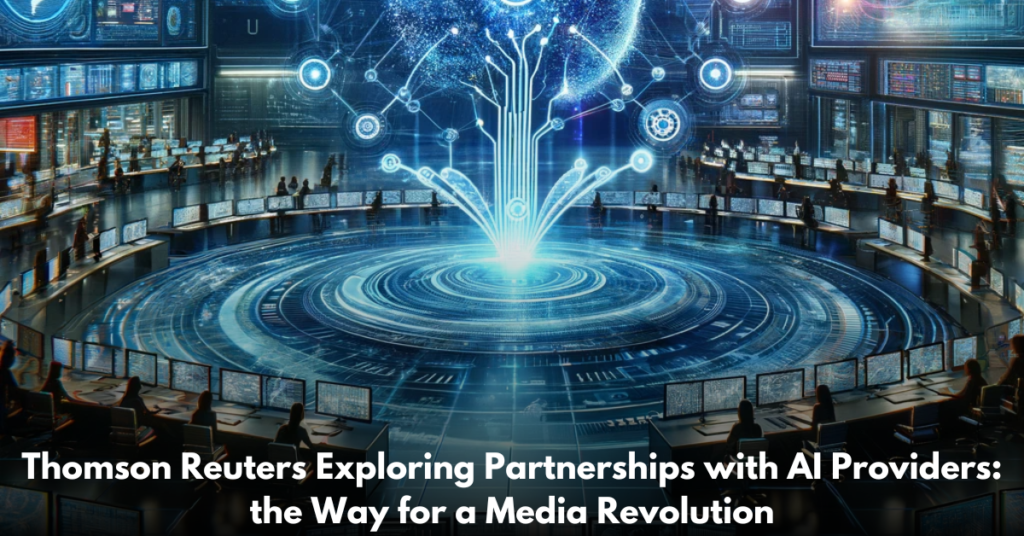Thomson Reuters Exploring Partnerships with AI Providers: the Way for a Media Revolution
In the legal, accounting, corporate, and government sectors, professionals’ workdays are becoming increasingly free of low-value tasks due to automation and the advancement of artificial intelligence (AI) technology. This change gives professionals more time to work on projects that are billable and growth-oriented. It also gives managers a rare chance to reconcile the benefits of technology advancements with the needs of their workforce.
The multibillion-dollar mass media and information company Thomson Reuters Corporation is currently negotiating with generative artificial intelligence (AI) vendors. The conversation centers on possible licensing contracts that might lead to a ground-breaking adoption of AI technology in the information and media industries. The proposed partnership structure is similar to the recent agreement between Axel Springer SE and OpenAI, following a trend that is rapidly gaining traction.
The Relationship of the Media Industry with Artificial Intelligence


The impact of artificial intelligence (AI) on worker motivation and well-being is crucial as it is further integrated into workplaces. In fact, management choices have a significant impact on how meaningful work experiences impact employees—either positively or negatively. Employees will have more fulfilling work when management makes decisions that uphold employee autonomy, expand learning and skill-demonstrating opportunities, encourage greater transparency, and use data to inform decisions.
One of the biggest digital publishing houses in Europe, Axel Springer, has a successful partnership with OpenAI, the company behind AI models like GPT-3. Through this partnership, generative AI will be strategically implemented to improve content creation and expedite editorial procedures. Thomson Reuters and AI providers’ planned collaboration is evidence of the media sector’s emphasis on using AI technologies to create content. In fact, this move has the potential to completely change the way that news and other media content are created.
The details of the talks are still being discussed, but in a Bloomberg interview, Thomson Reuters CEO Steve Hasker confirmed that they are still underway. Hasker said that when it comes to licensing its content to major language model providers, Reuters has remained flexible. Later this year, more information about this innovative project is anticipated to be made public.
Future of AI in the Media Industry?


AI is expected to have a significant impact on every aspect of news production, including content creation and editing, as it continues to advance. Even though this development is still in its early phases, it offers an intriguing look at how AI technologies will be smoothly incorporated into the editorial process in the media industry in the future.
Employees will feel that their work is less meaningful if AI is implemented in a way that decreases employee autonomy, increases employee surveillance, reduces employee socialization, causes injustice or societal harm, and is unclear. These two needs—meaningful work and safeguarding employee well-being—align with industry reports tailored to the public sector, which indicate that meaningful work is the second-most important factor in employee retention and—more concerningly—that employee well-being has declined in the public sector since the global pandemic.



